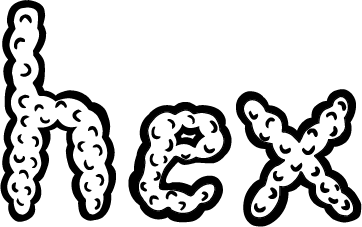Kali was one of the dogs I checked in on throughout that summer. Her owner was a short man with a long-distance fiancée and I never learned what he did for work exactly. He lived in the Northside, in a newly constructed apartment complex in The Domain and paid me to come by his place each day during lunch to take Kali out for a walk. His little Kali was a black schnauzer with pretzel-thin legs and a pirate’s underbite. She was angry all the time and constantly lurching to bite me as I let her out of her kennel. “I’m helping you!” I tried to soothe her each time she snapped. “I’m getting you out of here.” She never stopped, but it was hard for me to fault her. My language was too sharp, my motives untranslatable.
After checking in on Kali, Joe and I usually smoked and cooked. We dropped acid a few times that summer. One afternoon, when we were together, I went outside our apartment. It was across from the cemetery. A storm had come in the night before, bringing with it debris and pieces of others’ lives. A yellow button glowed atop the grass, a conspicuous treasure.
The ballooned text adorning it read, “Party Animal.”
“Party Animal,” I smiled to myself. The words were fur in my mouth. I rolled them over my tongue. “Party Animal, Animal Party.” I picked up the button and put it in my pocket, knowing I’d likely forget to take it out later.
This, I thought, was my little dog summer, my little dog song.
Back inside, I found Joe, standing before a red bowl of cut, wet peaches. He wanted to bake a pie but wasn’t sure how to begin. “Maybe later, I’ll be able to help you,” I told him. We moved from the kitchen to our bedroom and sat atop the bed, criss cross applesauce, facing each other.
“We’re going on a bear hunt. We’re gonna catch a big one. What a beautiful day, we’re not scared.” He sang to me, tracing the slope of my nose and cupid’s bow with the back of his hand. He was tender as the effects of the drug took over and I shook like an animal.
“You’re purple,” I said. The sunlight came in through the bedroom window, and the colors moved across his face. “You’re all purple all over.”
We got under the blankets and waited for it all to happen.
We asked ourselves questions we didn’t have the answers to.
“If we lived on a farm, what kind of animals would you want to have?” he asked. He rested his head atop his hands, a little boy cherub with the body of a man. “I have always wanted to own a horse.”
“No,” I shook my head. “Too fragile. If they fall and break their leg, they’re fucked.”
“How about pigs?” he asked. “We could get pigs.”
I thought first of Wilbur, then of the feverish two million feral hogs that rampaged Texas’ wildlife, that were legal to hunt year-round, of all the destruction they caused.
“Yes, a pig’ll get by,” I said. “A pig’ll make do.”
“You’re not wrong,” he looked at me.
When we decided to head outside, the concrete street beneath us turned into ice cream, and we slid up and down the road leading to St. Mary’s Strip. We ran into a former classmate of mine, dressed in a suit. It was too hot for summer, but this guy had a good job, coding for a health insurance company.
“Hey,” I said. “This is my boyfriend, Joe.”
A scowl peeled across Joe’s face. He loathed meeting my contemporaries, reminders of another life I could be part of, one in which he didn’t belong. I tried to take Joe’s hand, but he pulled away from me and plodded off, stopping only to light a cigarette.
We walked and thought to ourselves silently and sweated. We ate Raspas and corn in a cup at the yellow taco truck parked outside of Hardbodies, the strip club. There was a gray cat who lived there with no name. We just called it the Taco Truck Cat.
We sat down on the curb, clutching our food, and the cat snuggled up to us, winding his way like infinity around our calves. The cat yawned, and a beam of light caught on his front fang and I thought of God, and how if there was one, this was it. This was it.
Everything that summer was so fallible, our collaboration never guaranteed to last. My neurotransmitters were delicate, frayed, mixing up past and future messages. I told Joe I needed a break.
I was out running one night when I caught a slug on my foot. As I stopped and bent over to peel it off, my phone fell out of my pocket, and I saw six missed calls from Joe. I called him back.
“Why’d you call so many times?”
“I don’t know. I’m sorry. I don’t have anything to say,” he exhaled. “I guess, I just wanted to behold you.”
I was silent for some time, the sound of the cicadas speaking for me, before I said, “I’m sorry. I don’t think I can do this.” I blocked his number not long after that.
We do not talk now. I do not know where he is or if he exists at all. But sometimes to remember him, I will head down to the cemetery outside our old apartment complex and imagine having loved him enough to miss him. My hip bones poking into the dirt, I will sit atop an unmarked grave and wait.
________
Robin Bissett is a writer, editor, and teaching artist from West Texas. She is an alumna of the University of Iowa’s International Writing Program Summer Institute and a first-year fiction MFA candidate at the University of Montana, where she serves as the Online Managing Editor of CutBank.
